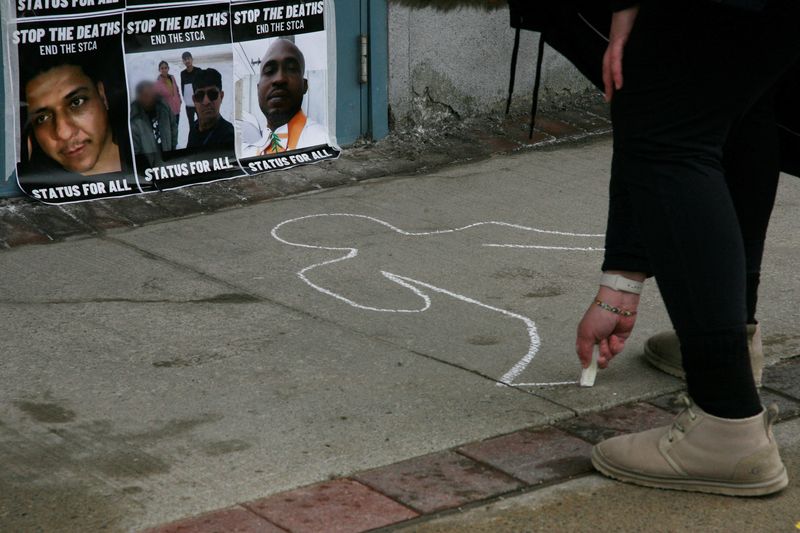
© Reuters. FILE PHOTO: An activist draws a chalk outline of a body near pictures of victims who died while crossing the border between Canada and the United States, during a demonstration for Refugee Rights Day in front of Public Safety Minister Marco Mendicino’s co
OTTAWA (Reuters) – The Canadian government, under pressure over images showing asylum seekers sleeping on the streets of Toronto, on Tuesday said it would give the city an extra C$97 million ($73.6 million) to help meet the demand for housing.
The money is part of a C$212 million ($160.9 million) one-time injection to help major cities deal with rising numbers of arrivals flowing from the United States and elsewhere, Immigration Minister Sean Fraser said in a statement.
The federal government of Prime Minister Justin Trudeau, which has responsibility for refugees and asylum seekers, prides itself on its record of accepting those fleeing oppression even as it tries to tighten its border with the United States. But Toronto, Canada’s largest city, says Ottawa has not provided anywhere near enough money to keep shelters open.
“These people are left homeless and living on the kindness of strangers who give them food, water, sleeping bags, and some clothing, as they try to survive in the heat and rain,” city legislator Kevin Vuong wrote to Trudeau last week.
In response, Fraser said in his statement that federal authorities had over 3,800 hotel rooms in six provinces to provide temporary housing to asylum claimants as of early July.
At the end of 2022, Canada had more than 70,000 pending refugee claims. Almost 40,000 asylum seekers entered Canada through irregular border crossings from the United States last year — nine times higher than in 2021 when COVID-19 related restrictions were enforced.
In March, the United States and Canada changed a two-decade-old refugee agreement as part of an attempts to reduce the influx across the world’s largest land border. The Quebec government says the increase is straining its capacity to house people and provide basic services.
($1 = 1.3175 Canadian dollars)





